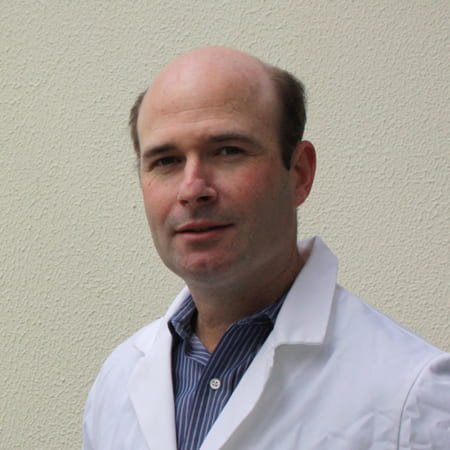Alex Idnurm Biography
Research projects | The Team | Publications
Alexander Idnurm did his undergraduate Honours (1997) and Ph.D. (1999-2002) research at the University of Melbourne with Barbara Howlett, working on the fungus Leptosphaeria maculans that is the main pathogen impacting the canola industry in Australia and world wide. He spent 1998 in the United States studying different molecular biology aspects in the plant families of the Cactaceae and Gesneriaceae, based at the University of Massachusetts-Amherst and the Smithsonian Institution in Washington, DC. From 2002-2007 Alex engaged in post-doctoral studies at Duke University Medical Center in the lab of Joseph Heitman. This research involved identifying the genes required by the human pathogen Cryptococcus neoformans to cause disease and, related to this, the role of light on the physiology of an evolutionarily informative selection of fungal species. These fungi included the Mucoromycotina species Phycomyces blakesleeanus, best known as the species chosen by Max Delbrück [a founder of “molecular biology” and a 1969 Nobel laureate] in the 1950s to build upon the advances made for bacteria and their parasitic viruses.
From 2007-2014 Alex was an assistant professor and then tenured associate professor at the University of Missouri-Kansas City. At UMKC, his lab was adjacent to the world-renown Fungal Genetics Stock Center. During his time at UMKC his research focus was on the impact of light on fungal biology. In 2014 Alex returned to the University of Melbourne with an Australian Research Council Future Fellowship, to continue research on human pathogenic and model fungi and to reinstigate his original research interests on L. maculans and plant diseases. As a PhD student and then since 2014 he has pioneered new molecular biology methods to investigate the genes that are used by L. maculans to cause disease on canola.
Alex is on the editorial boards of a number of international journals, and was one of the two founding editors-in-chief, with Vera Meyer, of the BioMed Central journal Fungal Biology and Biotechnology, launched in 2014. He is a member of the Faculty of 1000, and his recommendations on research articles are available at F1000prime. Alex was one of the scientific program chairs with and Deb Bell-Pedersen for the 29th Fungal Genetics Conference in 2017.
More recent publications of research or other activities are listed on the lab’s page, while from between 2000-2014 can be found here. Other overviews are available from ResearchGate or Google Scholar.
